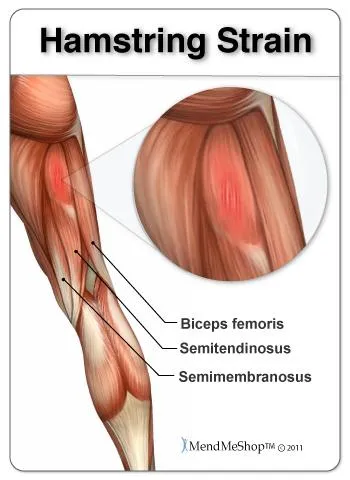
How to Prevent Hamstring Strains in Team Sport Athletes
How to Prevent Hamstring Strains in Team Sport Athletes – Lewis Physical Therapy & Sports Rehab
What You'll Learn In This Blog
Hamstring strains are one of the most common injuries for athletes in football, baseball, basketball, and soccer — especially during preseason or training camp. These injuries happen when athletes go from a lower offseason workload into sudden high-speed running demands without proper preparation.
The good news? With smart sprint programming and the right strength balance, hamstring strains can often be prevented.
🎥 Watch the Full Hamstring Strain Prevention Breakdown on YouTube
Don’t miss the full breakdown on sprint programming, eccentric/isometric hamstring work, and injury prevention strategies.
▶️Watch Now on Youtube:
Follow these steps to prevent hamstring strains
1. Understand Why Hamstring Strains Happen
Most hamstring injuries occur during the late swing phase of sprinting, when the hamstring is under extreme eccentric stress. If the muscle isn’t conditioned to handle that, strains happen.
2. Build Sprint Progressions into Offseason Training
The best way to prepare hamstrings for sprinting is sprinting itself. A smart progression looks like this:
Early offseason: 10-yard sprints at submax effort
Mid-offseason: 15–20-yard sprints at 80–85% effort
Preseason prep: multiple exposures of 90%+ sprints (20–30 yards) to mimic game intensity
3. Balance Strength Training with Sprinting
Strength work is essential but needs to match the training phase:
Early offseason: isometrics (RDL holds, hamstring bridges)
Mid-offseason: add eccentric work (e.g., Nordics, hamstring curls) 1x/week plus isometrics
Preseason: reduce eccentric work since sprinting itself is eccentric loading — instead, use higher-load isometrics to reinforce strength without creating soreness
4. Keep the Workload Manageable
Less is more as the season approaches. Overloading the hamstrings with gym eccentrics AND sprinting can backfire. The goal is to arrive at training camp with hamstrings conditioned but fresh.
Key Takeaway
Hamstring strain prevention isn’t about hammering Nordics every session. It’s about balancing sprint exposure, eccentric strength, and isometric reinforcement to match the training phase. Athletes who build this progression are less likely to pull up limping mid-sprint when the season starts.
🎙 Listen to This Episode on The Lewis Physical Therapy & Sports Rehab Podcast
Catch the full breakdown of hamstring strain prevention, sprint progressions, and strength training balance for athletes.
🎧 Listen on Spotify: https://open.spotify.com/show/4A6iBs0CzkAwSu9rUVPfGX?si=lrea2AaWQSy5USIT90KXhQ
⚡ Build Speed & Stay Injury-Free with the Triple Threat Sprint System
Want a proven sprint training plan built for high school athletes? The Triple Threat System is a 10-week program designed to help you run faster, build explosive power, and reduce injury risk.
👉 Get started here: https://www.lewisptsr.com/home-page-673984-4202
🩺 Can’t Compete Without Pain?
If hamstring injuries or other sports injuries are holding you back, we can help. Schedule a discovery call today with our experts in Physical Therapy in Point Pleasant and take the first step toward getting back to your sport at full speed.
👉 Contact us here: https://www.lewisptsr.com